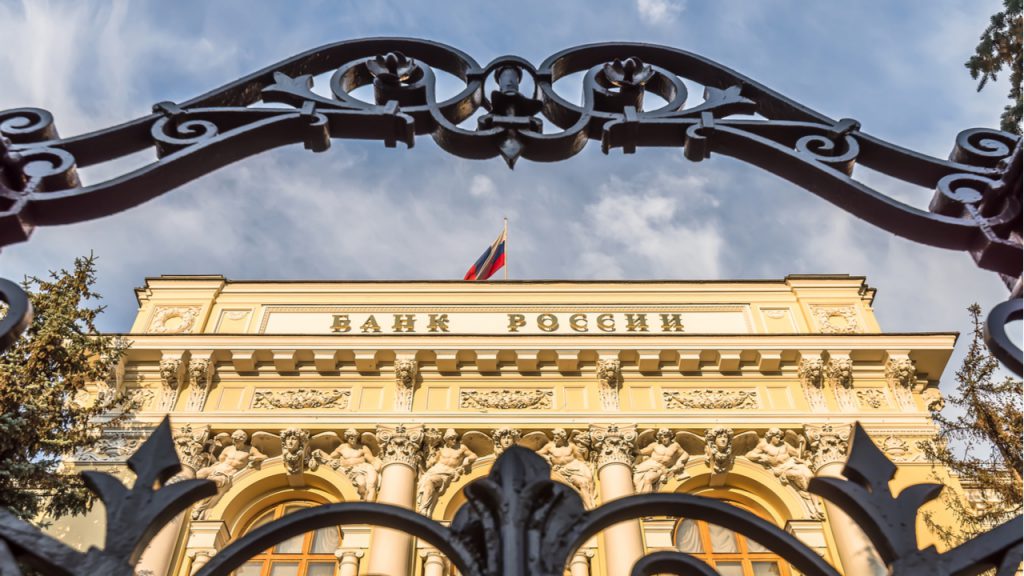
Russia’s central bank has voiced opposition to the provision of financial services related to cryptocurrencies. The monetary authority believes such offerings would go against the interests of Russian investors as they are highly risky.
Central Bank of Russia Unwilling to Allow Financial Services for Crypto Assets
The Central Bank of Russia (CBR), known for its hardline stance on the legalization of cryptocurrencies, has dismissed a call by members of the financial sector to authorize the provision of crypto-related services. The regulator announced its position during a meeting with representatives of the industry, held to discuss the prospects for the development of the Russian stock market.
According to a recently published announcement, the financial businesses raised the question of allowing crypto investment in the Russian Federation. Responding to their suggestion, the monetary policy regulator stated:
According to Bank of Russia, the provision by financial institutions of services related to operations with crypto assets and derivatives on such assets does not meet the interests of investors in the financial market and carries great risks.
The press release further reveals that the central bank has also turned its back on the industry’s proposal to expand the practice of issuing Russian financial instruments in foreign fiat currency.
Bank of Russia has consistently maintained a conservative view regarding the status of the Russian ruble as the only legal tender in the country which it wants to preserve. The CBR remains opposed to permitting the free circulation of bitcoin and the like as well as their use in payments.
The monetary authority has often referred to cryptocurrencies as “money surrogates” which are banned under current Russian law. It’s also working to develop and issue its own digital ruble with trials expected to begin as early as January 2022, after the completion of the platform’s prototype by the end of this year.
While cryptocurrencies remain only partially regulated in Russia through the law “On Digital Financial Assets,” which went into force in early 2021, their popularity as an investment option has grown significantly. Survey results released by the CBR have shown that cryptos and other alternative assets form over half of the portfolio of non-qualified Russian investors.
In July, Bank of Russia advised domestic stock exchanges to avoid the trading of financial instruments tied to crypto assets and their prices. Their listing “entails increased risks of losses for people who do not have sufficient experience and knowledge,” the authority warned.
The bank also insisted that asset managers should not include cryptocurrencies in mutual funds and called on brokers and trustees to refrain from offering “pseudo-derivatives with such underlying assets to unqualified investors.” Russian lawmakers are considering restrictions on the funds private investors may put into crypto.
Do you think Bank of Russia can change its stance on crypto investment in the future? Share your expectations in the comments section below.
Image Credits: Shutterstock, Pixabay, Wiki Commons
Disclaimer: This article is for informational purposes only. It is not a direct offer or solicitation of an offer to buy or sell, or a recommendation or endorsement of any products, services, or companies. Bitcoin.com does not provide investment, tax, legal, or accounting advice. Neither the company nor the author is responsible, directly or indirectly, for any damage or loss caused or alleged to be caused by or in connection with the use of or reliance on any content, goods or services mentioned in this article.
Read disclaimer


